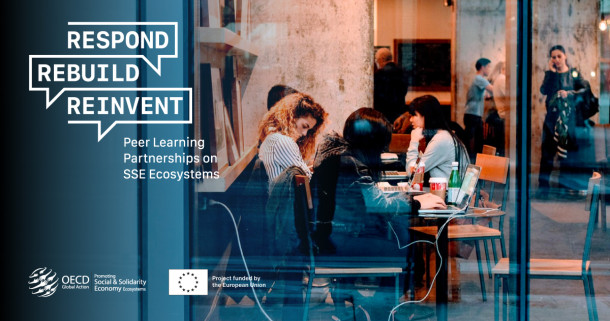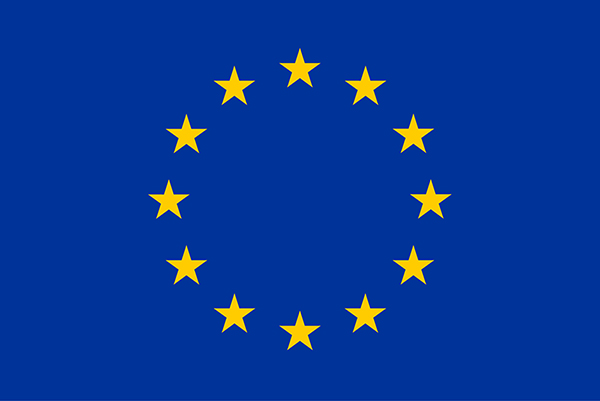
Respond, Rebuilt, Reinvent: Delving into public administrations collaborating with SSE ecosystems
Building on the work started last month during the first meeting between Peer Cities, the nine cities of the EU-funded “Respond, Rebuilt, Reinvent” (RRR) project, part of the OECD’s Global Action on Social and Solidarity Economy (SSE) ecosystems, met once again virtually on 15 July with partners from the RRR to continue looking at how to enhance cross-sectoral collaboration with their local SSE ecosystems.
During this meeting, the cities identified the expertise they could offer to other cities and determined experiences and transversal approaches they would like to learn from.
In the next stage, specific working groups between the peer cities will be formed, based on synergies and common interests regarding how to improve collaboration with SSE ecosystems, with a special focus on ways to accelerate recovery from the impact of the pandemic.
A more detailed analysis on specific city programmes and the experiences of the RRR project partners will be undertaken from now until mid-October. Some of the goals include drawing general insights on ways to improve capacity building, or helping scale successful SSE practices.

City government collaboration with SSE ecosystems is not starting from scratch
Although collaboration with SSE actors is approached differently, the exchanges allowed to find common arcs on what specific expertise cities could offer while shedding light on the need to investigate further particular issues such as the steps to go from co-creation to co-implementation.
Several cities have well-implemented mechanisms for co-creation or establishment of collaborative processes with SSE actors. Some cities have mechanisms in place that encourage this collaboration, which can serve as good practice examples for other cities to learn from. For example, Dublin’s Social Enterprise Awards encourage social enterprises to start and grow their businesses in the city, and since 2015 they have acted as a connecting platform between the city and stakeholders from the ecosystems. Guadalajara has focused on developing transversal communication strategies, Belo Horizonte is working towards digitalisation, together with social entrepreneurs, to overcome difficulties in internet access, and Bilbao has created several financial mechanisms for SSE actors to apply for government contracts. The latter approach could be complemented by Rotterdam’s experiences on how to make social impact bonds tradable. Torino has a long tradition of co-designing solutions with diverse actors through their hubs, but still needs to fine-tune the best way to advance to collaborative management. Meanwhile, Montréal’s and San Francisco’s long history of collaboration with SSE actors, and Warsaw’s experience with non-profit organisations, can contribute valuable insights on building long-term partnerships.
Trust and communication, two pillars for improving collaboration
Two topics that came back regularly during the exchanges were the issues of trust and communication between all the stakeholders involved in SSE ecosystems, either service providers or end-users. How can a solid foundation of trust be built between SSE actors and the population within a region? What role can city governments play in creating awareness and communication strategies to encourage general public spending in the SSE? How can we reach vulnerable communities that may not know how to connect, or might not trust institutions? Finding ways to answer these questions is fundamental to help strengthen the local SSE ecosystem, but also to put the right conditions in place for new actors to find, develop and test solutions to social challenges.
These are some of the questions that will be at the heart of the upcoming RRR exchanges, and that will be integrated into the debates during the first OECD conference of the Global Action “The Social and Solidarity Economy: from the Margins to the Mainstream”, that will take place from 13 to 16 September 2021.
For more information about this project, please contact Guillaume Berret from the Metropolis Secretariat General.
A program of the OECD:

Project funded by the European Union


